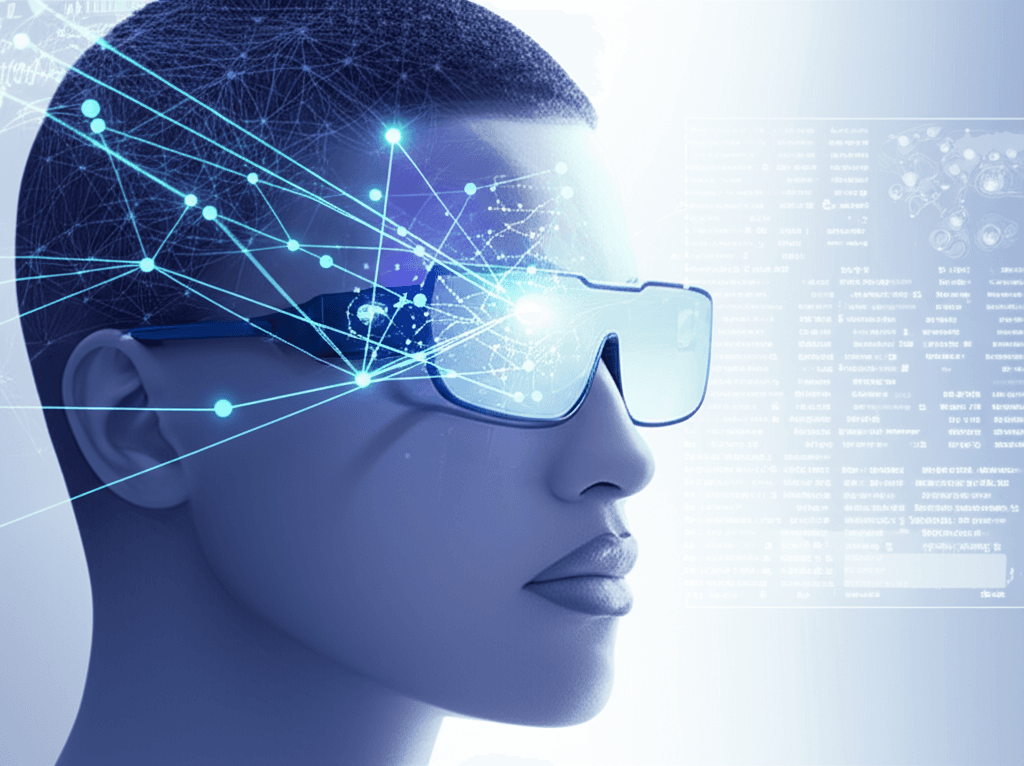Zuckerberg: Meta AI Glasses Grant 'Personal Superintelligence,' Redefine Cognition
Zuckerberg's "personal superintelligence" via AI glasses promises enhanced cognition, raising critical questions about privacy and societal division.
July 16, 2025

Meta CEO Mark Zuckerberg is championing a future for artificial intelligence that diverges from the paths of many competitors, focusing on what he terms "personal super intelligence." This vision centers on AI seamlessly integrated into daily life through new hardware, most notably augmented reality glasses. Zuckerberg has made the bold prediction that failing to adopt these AI-powered glasses in the future will place individuals at a significant cognitive disadvantage, akin to forgoing corrective lenses for poor eyesight today.[1][2] This strategy signals a significant bet on wearable technology as the next major interface for AI, moving beyond the current landscape of chatbots and business-focused automation to create a constant, personalized AI companion.[1][2]
At the core of Meta's ambition is the concept of "personal superintelligence," an AI tailored to the individual rather than a centralized system for broad commercial or research applications.[2] In recent interviews, Zuckerberg has articulated a vision where this AI is not primarily about automating jobs, but about enhancing personal aspects of life such as relationships, creativity, and social needs.[3][2] He envisions an AI that can remember details from conversations, help you follow up on commitments, and provide context about the people and world around you.[1][4] To achieve this, Meta has launched Meta Superintelligence Labs, a unified division aimed at building AI that can reason, learn, and create beyond human levels.[5] This ambitious initiative involves a massive talent acquisition effort, poaching top researchers from rivals like OpenAI and Google with significant compensation packages, and a colossal investment in infrastructure, including two huge data center projects dubbed Prometheus and Hyperion.[5][6][7]
The primary delivery vehicle for this personal superintelligence is intended to be a new generation of smart glasses. Zuckerberg believes that glasses are the ideal form factor for a personal AI because they can see what the user sees and hear what they hear, providing unparalleled context for assistance.[4][8] This hardware would move beyond the capabilities of current products like the Ray-Ban Meta smart glasses, which already integrate cameras and AI features.[9][10] Future iterations, including a long-term research project codenamed Orion, aim to project full holographic displays, creating a truly augmented reality.[11][8][12] These glasses could provide real-time information, manage daily tasks, and even offer live translation, fundamentally changing how users interact with their environment and each other.[1][13] Research prototypes like the Aria Gen 2 are already packed with advanced sensors, including multiple cameras, microphones, and even a pulse detector, to understand a user's context and emotional state.[9]
Zuckerberg's prediction of a "cognitive disadvantage" for non-users highlights the potential societal schism that could arise from such technology.[1] If these AI glasses deliver on their promise of augmenting memory, facilitating communication, and providing instant information, those with access could experience significant enhancements in productivity and social interaction.[1][3] This creates a scenario where a new digital divide could emerge, separating not just the connected from the unconnected, but the cognitively augmented from the un-augmented.[14] Critics and ethicists raise significant concerns about this future, pointing to the immense privacy implications of a device that is always observing the world from a first-person perspective.[15][14] Issues of data security, consent, algorithmic bias, and the potential for misuse, such as stalking, are paramount.[15] Furthermore, there is the risk of over-reliance on AI, potentially dulling critical thinking and problem-solving skills as users outsource cognitive functions to their devices.[16]
Meta's pivot towards personal superintelligence and AI glasses is not without its internal and external challenges. The company's push has been described as a way to regain relevance after its heavy, and so far less fruitful, investment in the metaverse.[17][18] This aggressive new focus has reportedly caused some internal friction, with former employees describing a directionless and demoralized atmosphere in some AI units as resources are funneled into the new superintelligence team.[19] Skepticism also stems from Meta's track record with grand promises, drawing comparisons to the metaverse vision that has yet to be fully realized.[20] The company also faces intense competition from other tech giants like Google, Apple, and Microsoft, all of whom are developing their own AI and hardware ecosystems.[5][6] Moreover, Meta's history of data privacy scandals could impact user trust, a critical component for a product that gathers such intimate personal data.[21][15] Despite these hurdles, Zuckerberg remains committed, framing Meta's approach as a unique mission to empower individuals and build the future of human connection, one where technology, specifically AI glasses, is meant to bring people closer together.[3][11]
Sources
[1]
[3]
[5]
[7]
[8]
[10]
[11]
[12]
[13]
[14]
[15]
[16]
[17]
[18]
[19]
[20]
[21]